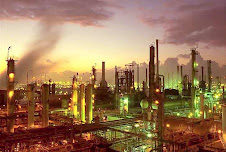a carbon-constrained business environment is now rapidly approaching since it has become an entrenched bureaucratic issue a couple of years ago. regulators on all levels, international, supra-regional and national are in full gear. they are keen on their increasing power and will use it, first incrementally, later extensively. but the real clamp down will come from smarter competitors. examples are manifold.
caps everywhere
see what is happening next door: there is a rapidly expanding european cap and trade system, the swiss are starting to put limits on passing freight through the alps, maximal start allowances allotted to airports and maximum emissions allowances per km are being forced upon car manufactuerer. caps are emerging everywhere.
this new paradigm has already initiated structural changes to the underlying forces of competition. competitive advantages are being redistributed. who will be on the winning side? the new, and now much hyped but much misunderstood, business frontier is defined by an absolute limit on the emissions on carbon dioxide and equivalent greenhouse gases from our value-adding transformation of material inputs into goods and services.
from greenwash to real business opportunities
many businesses, so the common impression, are grasping the trend. but are they really changing? i would argue that they are not really acquiring new competitive advantages as regards the fundamental shift in the business environment. almost all of them are "simply" adopting defensive postures by either cleaning up or improving their overall productive efficiency. they are throwing all their might behind the concept of relative (environmental) improvements of their products (and in the back they are wasting lots of money and efforts to lobby politicians to abandon those plans or at least postponing them). this is being done in order to continue with their same old business concept. to sell more of this or that good. this is a dead end since a cap implies logically a limited - or even a shrinking - pie. so a purely defensive posture ("compliance") will not secure but destroy opportunities for long-term individual business growth.
a game beyond business
this change, a cap a on certain emission, is not the first of its kind. most markets are shaped by regulation that limits certain kinds of emissions. we could even say that almost all modern product markets exist partly because of stringent regulation.
what is different this time? carbon dioxide is a very good proxy for energy consumption. so finally we have reached a developmental level which requires limiting the use of energy to comfort our lives (actually, we have reached a developmental level which threatens the long-term prospects of our civilization). so far, gdp growth is closely related to growth in primary energy input consumption. even worse, considering that gdp is basically a defunct measure for human welfare and has become a meaningless end for itself, we will have to do with less. a shrinking pie. a fundamental paradigm shift. think growth or value creation with less material inputs.
back to business
what does that imply for securing long-term individual business growth prospects? change your business concept by adopting a new value proposition: not goods are sold but flows of services bundled and packaged into new solutions. it means, nothing new, a new focus on the real needs of your customers. taken with new lenses. your customer does not need to buy bulbs and electricity but she needs a lightening service and I do not need 1.5 ton car to move my 80 kg around but a sound mobility solution to meet people and see places and i also do not need every two year a new laptop but access to computing and storage.
what will it mean for the building supply chain actors when in 2030 all new construction has to be build against, e.g, minergie p standard? what will it mean for the automotive sector when due to new spatial laws, mobility concepts and stringed CO2 caps per km demand eventually brakes away? what will it mean for business models reliant upon global supply chains when transport suddenly becomes a big cost factor again?
focus on relative environmental improvements of existing products will then not be enough to really succeed in these scenarios. it is a purely technological approach which does not alter the business model, not even really changing the manufacturing process. relative improvements have to be cast within an absolute limit. to transcend those new limits a new mindframe is needed. if a business wants to create and capture the future value it will have again to radically separate form and function of its current products and reshape its functions into new services that satisfy the customers needs while leaving behind the limitation set by a carbon-constrained business environment. smart solutions abound, for sure.
19 September, 2007
business in a carbon constrained world
Subscribe to:
Post Comments (Atom)

No comments:
Post a Comment